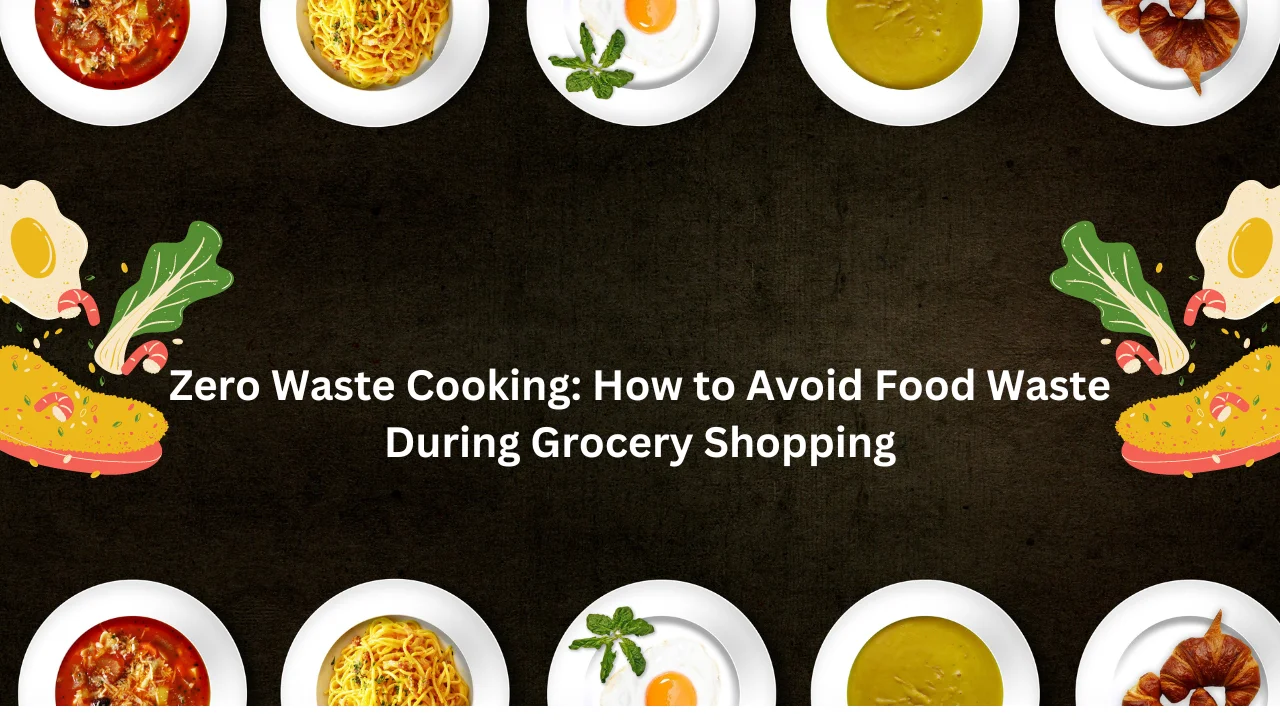In the journey toward a zero-waste lifestyle, grocery shopping is a crucial area where we can make significant strides. Proper planning and mindful choices can drastically reduce food waste and its associated environmental impact. Here’s how you can avoid food waste during your grocery shopping:
1. Plan Your Meals
One of the most effective strategies to minimize food waste is to plan your meals for the week. Create a menu that uses ingredients efficiently and ensures that nothing goes to waste. Make a shopping list based on your meal plan and stick to it. This approach prevents impulse buys and ensures you only purchase what you need.
2. Inventory Your Pantry and Fridge
Before heading to the store, take stock of what you already have in your pantry, fridge, and freezer. Use up ingredients that are nearing their expiration dates or those that you have in surplus. This prevents duplicate purchases and helps you use what you already own before it goes bad.
3. Buy in Bulk Wisely
Buying in bulk can be a zero-waste boon, but it requires careful consideration. Purchase non-perishable items or staples you use frequently, like grains, beans, or nuts, in bulk. However, avoid buying perishables in bulk unless you are confident you will use them in time. Also, use your own reusable containers to minimize packaging waste.
4. Opt for Loose Produce
When possible, choose loose fruits and vegetables over pre-packaged ones. This reduces plastic waste and allows you to buy only the quantity you need. Bring your own reusable produce bags to the store to further cut down on single-use plastic.
5. Understand Expiry Dates
Not all expiration dates are set in stone. “Sell by,” “use by,” and “best before” dates can often be misunderstood. “Sell by” dates are primarily for store inventory management, while “best before” dates are about quality, not safety. Use your senses—smell, look, and taste—to assess the freshness of food products.
6. Choose Imperfect Produce
Embrace “ugly” or imperfect fruits and vegetables. These often get discarded even though they are perfectly edible. Many stores now offer discounts on these items, making them a budget-friendly and eco-friendly choice.
7. Bring Your Own Containers
When buying items from bulk bins, deli counters, or bakery sections, bring your own containers. This not only reduces packaging waste but also helps you avoid plastic and cardboard that usually accompany these products.
8. Be Mindful of Portion Sizes
Purchase only what you realistically need. Avoid buying in large quantities if you’re unsure you can use everything before it spoils. Adjust portion sizes based on your household’s consumption patterns and storage capabilities.
9. Check Store Policies
Some stores have policies to reduce food waste, like selling items close to their expiration dates at discounted prices. Familiarize yourself with these policies and take advantage of such offers when possible. It’s a win-win for reducing waste and saving money.
10. Educate Yourself on Food Storage
Proper food storage is crucial in extending the life of your groceries. Learn how to store fruits, vegetables, dairy products, and other perishables to maximize their shelf life. For example, keep potatoes in a cool, dark place, and store herbs in the fridge to keep them fresh longer.
11. Support Local Farmers
Buying from local farmers or farmers’ markets can reduce food miles and support sustainable practices. Local produce is often fresher and might have less packaging. Engaging with local food sources also helps you learn more about seasonal produce and its optimal use.
12. Avoid Pre-Packaged and Processed Foods
Pre-packaged and processed foods often come with excess packaging and can contribute to food waste through single-serving sizes and non-reusable materials. Opt for whole foods and prepare them yourself to reduce waste and increase the nutritional value of your meals.
13. Implement a “First In, First Out” Approach
When you bring groceries home, organize your pantry and fridge so that older items are used before newer ones. This “first in, first out” approach helps prevent items from becoming forgotten and expiring before use.
14. Use Digital Lists and Apps
Leverage technology to help manage your grocery shopping more effectively. Use digital shopping lists and apps that track your pantry inventory, suggest recipes based on what you have, and remind you of expiration dates.
15. Be Flexible with Your Shopping List
While having a shopping list is essential, being flexible can help you take advantage of sales and reduce waste. If you see a good deal on an item you use regularly, consider adjusting your meal plan to incorporate it.
Conclusion
Avoiding food waste during grocery shopping requires a combination of planning, mindfulness, and adaptability. By implementing these strategies, you can make more sustainable choices, reduce your environmental footprint, and contribute to a zero-waste lifestyle. Every small step counts, and with these practices, you can make a significant impact on both your kitchen and the planet.
